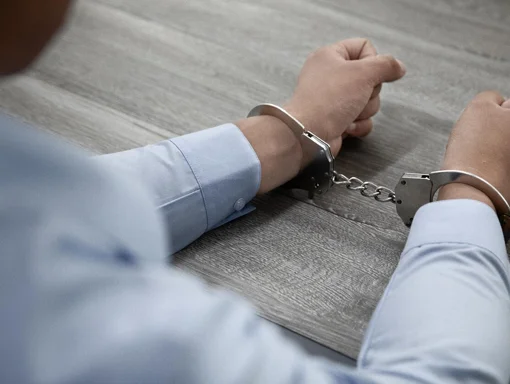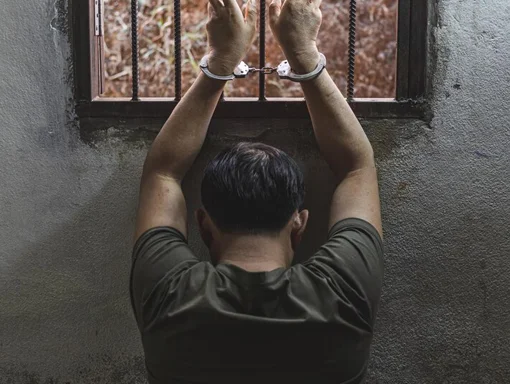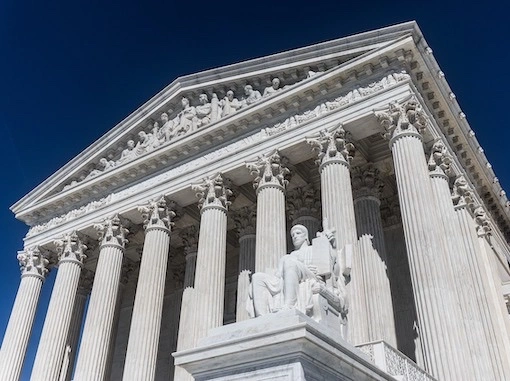Collin County Juvenile Defense Lawyer
Committed to Protecting Your Child’s Future
Selecting a juvenile defense lawyer in Collin County Texas can be pivotal to the outcome of a young person’s legal issues. A lawyer with experience in juvenile defense understands the legal routes to take and the protections your child is entitled to. We at Collin County Law Group want to demystify the process of finding and working with a proficient juvenile defense lawyer who can help steer your child toward a brighter future within the complexities of the justice system in Collin County Texas. To speak to someone about your case, call Collin County Law Group at 945-207-3705.
Navigating the Juvenile Justice System in Collin County
 The juvenile justice system in Collin County operates separately from the adult criminal justice system, guided by the Texas Family Code, Chapter 51. This establishes courts designed specifically for juveniles, recognizing that young people may lack a mature understanding of their actions. This distinct system emphasizes a more rehabilitative approach, a stark contrast to the punitive focus of the adult legal system.
The juvenile justice system in Collin County operates separately from the adult criminal justice system, guided by the Texas Family Code, Chapter 51. This establishes courts designed specifically for juveniles, recognizing that young people may lack a mature understanding of their actions. This distinct system emphasizes a more rehabilitative approach, a stark contrast to the punitive focus of the adult legal system.
Therefore, securing representation from an experienced defense lawyer, who is knowledgeable in juvenile law and familiar with the nuanced framework of the juvenile system, is indispensable for effective criminal defense.
Law enforcement and the government follow different procedures when dealing with juveniles and you need representation that understands those differences and can plan an effective defense. At The Collin County Law Group, our attorneys, with years of experience in both prosecution and defense of juveniles as well as regular practice of law in Collin County’s juvenile court, are ready to help you navigate this difficult time. We can help you understand how the process will unfold and how best to defend your child.
There are several differences or key areas you need to be aware of:
- Law enforcement does not have to consult with you or even notify you if they interrogate your child, remove your child from school, or take them into custody. Most of the time, you won’t know anything has happened until the authorities have finished interrogating your child and they are in custody.
- The Collin County Juvenile Probation Department has tremendous power to evaluate juvenile offenses and may refer cases to the prosecutor’s office for serious charges. In more serious cases, the prosecutor may seek to try a juvenile as an adult.
- If your child is facing a drug charge in Collin County Juvenile court you need to have an attorney who is knowledgeable in criminal law, juvenile law, and the rehab facilities available to your child.
- If your child is suspected of committing a crime and the police or law enforcement wants to interview them while at school, you need to be aware the school is not going to prevent that from happening, is not going to call you and let you know, and is likely going to assist the law enforcement officer.
- Many times, a juvenile facing an allegation of delinquent behavior is also facing a disciplinary problem at their school. When searching for a lawyer to represent your child you should make sure they have experience and the knowledge to address the school disciplinary issues as well. Our juvenile law attorneys at The Collin County Law Group can help you navigate these confusing intersections of the law.
- At the conclusion of a juvenile case, your child may be eligible to seal the records against them. This can help them in the future, but this process isn’t done automatically by the courts sometimes. We can explain to you and your child their rights, the rules, and their eligibility to seal their record.
Understanding Juvenile Law and the Family Code
The Texas Family Code Chapter 51 serves as the cornerstone of juvenile law in Texas. It outlines the system’s purpose, definitions, and scope, with an emphasis on removing criminality from certain acts committed by children and protecting their legal rights through a simplified judicial process. The Code recognizes specific categories such as ‘status offenders’ and ‘nonoffenders’, focusing on acts that aren’t criminal for adults and situations unrelated to a child’s conduct.
Unlike adult criminal proceedings, juvenile proceedings in Texas are civil, not criminal, underscoring the system’s emphasis on protection and rehabilitation over punitive measures. This intersection of Texas Criminal Law and the Texas Family Code impacts how juvenile offenses are addressed, thus, entrusting the understanding of this system to seasoned juvenile defense lawyers is recommended.
The Role of the Collin County Juvenile Probation Department
The Collin County Juvenile Probation Department plays a significant role in the outcome of juvenile cases. The department offers several programs aiming to address the needs of juvenile offenders and their families, enhancing public safety, and encouraging positive behavior changes. Each case is evaluated using a risk assessment instrument to decide the appropriate action, which can range from:
- a casual warning
- referral to community-based programs
- probation supervision
- formal court proceedings
In more serious cases, the department has the power to refer cases to the prosecutor’s office, potentially leading to the prosecution of the juvenile. This highlights the necessity of a proficient defense attorney capable of adeptly understanding the juvenile justice system and advocating for the child’s interests.
Defending Against Juvenile Delinquency Allegations
In the face of juvenile delinquency allegations, the presence of a seasoned defense lawyer in the courtroom – capable of challenging the validity of the evidence against the child and ensuring the safeguarding of all constitutional rights – is of utmost importance. At Collin County Law Group, our attorneys negotiate with prosecutors for alternative sentencing options such as diversion programs. These programs serve as a strategy to avoid formal adjudication, thus minimizing the negative impacts and long-term consequences of a juvenile record.
In all cases, our defense team meticulously takes into account the juvenile’s age, history, and personal circumstances while formulating a strategy for negotiating consequences. Engaging our juvenile defense attorneys early in the juvenile process can lead to a more expedient legal process, reducing the duration a juvenile might spend in the justice system.
School-Related Legal Challenges
When a child is accused of a crime at school, the legal challenges can be complex. Our attorneys ensure that potential educational repercussions such as suspension or expulsion are properly addressed, minimizing disruptions to the child’s academic progress. In disciplinary proceedings within educational institutions, our attorneys can mediate with the school on the child’s behalf, working to protect the child’s legal rights and academic future.
Our defense strategies also include challenging the legality of searches or questioning by school officials that may not align with legal procedures or safeguards. Moreover, we investigate whether a child’s due process rights have been respected during school disciplinary proceedings, which plays a pivotal role in fortifying students’ legal protections during juvenile charges.
Additionally, we provide resources and support to families to address underlying issues that might contribute to the child’s involvement in school-related offenses.
Strategies for Drug-Related Offenses
In Texas, delinquent behavior encompasses violations of the penal code and laws punishable by imprisonment or fines, hence legal knowledge and advice in both criminal and juvenile laws is critical when dealing with drug charges in juvenile court. The Deferred Prosecution program provides juveniles who commit less serious offenses a path to avoid formal proceedings by complying with program terms such as community service or restitution over six months.
Our legal representation for juveniles includes early intervention tactics to identify and address potential substance abuse or mental health issues. Collin County Law Group’s defense strategies for juvenile drug offenses prioritize access to evidence-based treatment and rehabilitation tailored to the youth’s specific needs.
The Critical Decision: Juvenile vs. Adult Court
 A critical decision in juvenile cases is determining whether the case will be tried in juvenile or adult court. This determination can have significant implications for the child’s future. In Texas, anyone 17 or older is an adult regardless of the type of crime. However, juveniles aged 14 or older can also be tried as adults for felonies, with mental health and other factors playing a role in this determination.
A critical decision in juvenile cases is determining whether the case will be tried in juvenile or adult court. This determination can have significant implications for the child’s future. In Texas, anyone 17 or older is an adult regardless of the type of crime. However, juveniles aged 14 or older can also be tried as adults for felonies, with mental health and other factors playing a role in this determination.
In serious cases involving felonies, violence, or weapons, the case may be directly sent to the prosecutor’s office, which decides on the suitability of adult court proceedings. At Collin County Law Group, we employ skilled negotiation tactics with state prosecutors to limit the likelihood of juveniles facing adult charges. We also advocate for blended sentencing that focuses on both rehabilitation and accountability as a preferable alternative to adult incarceration for juveniles.
Long-Term Consequences of Adult Court Convictions
Adult court convictions for juveniles can result in a diminished likelihood of successful rehabilitation and pose challenges to their reintegration into society due to the adult criminal justice system’s emphasis on punishment. Additionally, juveniles convicted in the adult system may serve sentences in adult prisons, where they are more vulnerable to physical and emotional harm due to interactions with the older inmate population.
Furthermore, convictions in adult systems contribute to lifelong legal records for juveniles. These records can hinder future opportunities in education and employment, and disproportionately affect minority and low-income communities, reinforcing cycles of crime and incarceration. This amplifies the importance of striving to keep cases within the juvenile system, as addressing juvenile crime as often as feasible can help break these cycles.
Our Defense Philosophy for Juvenile Cases
At Collin County Law Group, our defense philosophy for juveniles is rooted in over 100 years of combined experience, a deep understanding of juvenile law, and a strong desire to protect the future of our young clients. Recognizing that juvenile criminal cases are distinct from adult criminal cases, we bring a dedicated level of intention to every case we handle.
We believe in fostering accountability and offering treatment, training, and rehabilitation aligned with the principles of the Texas Family Code. The welfare of the child remains our priority in every decision we make, each strategy we implement, and all negotiations we undertake.
Tailored Defense Strategies
Our defense strategies are tailored to the unique circumstances of each case. We identify root causes such as peer influence, family environment, and socioeconomic factors, which can shed light on a child’s behavior and inform our defense strategies. Psychological evaluations and educational assessments can provide additional insights and are used strategically to argue for the potential for rehabilitation.
We champion restorative justice practices that emphasize the juvenile’s rehabilitation and the restoration of the community. The juvenile’s character, achievements, and positive life aspects are presented in a way that can positively influence their case. Acting as an advocate, counselor, and attorney allows us to serve the juvenile’s needs.
Sealing Juvenile Records
Sealing juvenile records in Texas can vacate all adjudications, effectively erasing the juvenile’s history with the court. Once sealed, these records are safeguarded from being used in various legal and civil contexts, thereby supporting the individual’s privacy in matters of employment and housing. However, the legal process for sealing records doesn’t occur automatically at the end of a juvenile case, and advocacy may be necessary to pursue this relief.
Our law firm provides services that facilitate the sealing of juvenile records, a significant step in ensuring a juvenile’s prospective college and employment opportunities remain unaffected. We believe in offering a second chance for juveniles, working to ensure their past mistakes don’t create barriers in their subsequent life endeavors.
Choose Collin County Law Group for Your Child’s Defense
At Collin County Law Group, our reputation precedes us. We are known for our solid track record in juvenile defense, which may leverage better results for our clients. We demonstrate our commitment to supporting families during challenging times through dedicated defense and consultations.
In these consultations, we offer exhaustive advice on legal options and their implications, thereby assisting families in making well-informed decisions regarding their child’s defense and ultimately, their child’s future. To schedule a consultation, call us today at 945-207-3705
Our attorneys bring a wealth of experience and a deep understanding of the procedural differences between juvenile and adult justice systems to every case. This deep understanding, combined with insight into the tactics commonly used by prosecutors, provides a significant advantage for our juvenile clients.
At Collin County Law Group, we are not just familiar with juvenile defense strategies; we understand the juvenile justice system from both sides of the courtroom, offering our clients dedicated representation. Let us be the advocates your child needs in their corner.
Frequently Asked Questions
What is the statute of limitations for a juvenile in Texas?
In Texas, the statute of limitations for a juvenile is two years from the date they turn 18 if a lawsuit is necessary.
What is a juvenile defense attorney?
A juvenile defense attorney focuses on representing children who are facing legal issues, providing them with legal defense and protection. They address the social welfare, health, education, and special needs of children in the juvenile justice system.
What is the role of the juvenile defense attorney?
The role of a juvenile defense attorney is to protect the rights of the defendant and ensure fair treatment throughout the legal process. They work to uphold fundamental rights, protect against self-incrimination, and insist on a fair trial.
Can a juvenile be tried as an adult in Texas?
Yes, in certain cases, a juvenile in Texas can be transferred to adult criminal court, a process known as “certification” or “waiver.” Factors such as the seriousness of the offense and the juvenile’s age may influence the decision to transfer the case to adult court. If a juvenile is tried as an adult, they may face more severe consequences.
How does the juvenile justice system differ from the adult criminal justice system?
The juvenile justice system in Texas is designed to focus on rehabilitation and treatment rather than punishment. It aims to address the unique needs of young offenders and provide them with the opportunity for reform. Procedures in the juvenile system also emphasize confidentiality and privacy to protect the minor’s prospects.
What should I consider when my child is facing an allegation of delinquent behavior?
It’s crucial to find a lawyer experienced in juvenile law who can address both legal questions and disciplinary issues at school when your child is facing an allegation of delinquent behavior.
What happens after a juvenile case?
After a juvenile case, your child may be eligible to seal their records, but it’s important to note that this process doesn’t always happen automatically and may require advocacy to pursue this relief.





